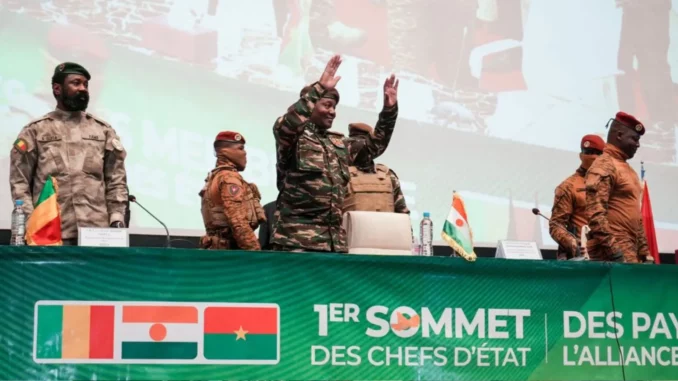
The Economic Community of West African States (ECOWAS) is grappling with its biggest crisis in five decades following the withdrawal of three junta-led countries — Mali, Niger, and Burkina Faso — from the 15-nation bloc, weakening its regional standing and political authority.
Formed in 1975 to promote economic integration and regional cooperation, ECOWAS has long been a pillar of political and economic authority in West Africa. The departure of these three Sahel countries marks the first-ever exit from the organization, driven by their dissatisfaction with ECOWAS’ handling of recent coups and its harsh sanctions, particularly those imposed on Niger after its military takeover in 2023. The sanctions, which included border closures and asset freezes, were condemned by the three countries, who accused ECOWAS of abandoning its founding ideals and undermining pan-Africanism.
In response, the three junta-led countries created the Alliance of Sahel States (AES), a new bloc aimed at asserting their own path in the region. The AES has severed military ties with Western partners like the United States and France, turning to Russia for support, further complicating West Africa’s geopolitical landscape. Reflecting on these developments, analysts note that in parts of West Africa, ECOWAS suffers from a legitimacy crisis, with citizens seeing it as representing only the interests of leaders and not theirs. Experts have also warned that ECOWAS’ weakened authority could lead to greater fragmentation in the region, making it more difficult to address critical issues such as terrorism, economic instability, and humanitarian crises.
Mali, Niger, and Burkina Faso’s exit also risks destabilizing regional trade and economic relations. Despite the growing tensions between the AES and ECOWAS, the latter has pledged to maintain diplomatic ties and ensure that citizens from the departing countries retain their travel rights and access to regional markets under the ECOWAS Trade Liberalization Scheme. The Abuja-based ECOWAS remains committed to dialogue, but analysts are uncertain whether the departure of these nations is a temporary setback or a long-term challenge to the bloc’s unity and influence in West Africa.
